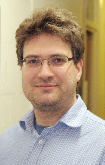Mattias Green
 Matt is a Senor Lecturer in physical oceanography at Bangor University’s School of Ocean Sciences. After studies at Gothenburg University, Swede, he moved to Bangor as postdoc and stayed on for a NERC Advanced Fellowship, before moving into his current position. His research deals with tides and how tides interact with other parts of the Earth System in the past, present, and future.
Matt is a Senor Lecturer in physical oceanography at Bangor University’s School of Ocean Sciences. After studies at Gothenburg University, Swede, he moved to Bangor as postdoc and stayed on for a NERC Advanced Fellowship, before moving into his current position. His research deals with tides and how tides interact with other parts of the Earth System in the past, present, and future.One important component of this is how tidal energy is lost in the ocean and how this affect the climate controlling overturning circulation under different climate scenarios and different time periods. He also works with observations and theoretical analysis on ocean turbulence, internal waves, and mixing in shelf seas in order to improve our understanding of how the ocean is mixed, and how we can improve ocean models to better replicate the mixing. One connection of this work is to investigate how the physics control biogeochemical processes, especially primary production at the shelf break, and how these have changed as the tides change over long time-scales.
Matt was in charge of grants for the Society but I am now (as of September 2018) the Honorary Secretary.
Latest News
Royal Society Publishing Photography Competition 2025
Please see a message from the Royal Society below:
We are delighted to announce that the 2025 Competition is now open for entries until 15 August for a chance to win £1000! The competition celebrates the power of photography in conveying the wonder of science happening all around us and photographs can be submitted in the categories of: Astronomy, Behaviour, Earth Science and Climatology, Ecology and Environmental Science, and Microimaging.
The competition is free to enter and open to anyone studying or working in science at graduate level or above. Category winners will receive a one-year membership to the Royal Photographic Society and the overall winner will receive a grand prize of £1,000. Find out more: https://bit.ly/RSPphotocomp
October 2025 MEDIN Workshop: Marine Data Management, Governance and the MEDIN toolset
The Marine Environmental Data and Information Network (MEDIN) are pleased to announce that registration is now open for the next occurrence of our popular free online training workshop: ‘Marine Data Management, Governance and the MEDIN toolset’ on the 13th – 17th October 2025 on OceanTeacher Global Academy.
Marine Data Management, Governance and the MEDIN toolset
The Marine Environmental Data and Information Network (MEDIN) and OceanWise are delighted to invite you to attend our popular free online training workshop: ‘Marine Data Management, Governance and the MEDIN toolset’ on the 19th – 23rd of May 2025.
